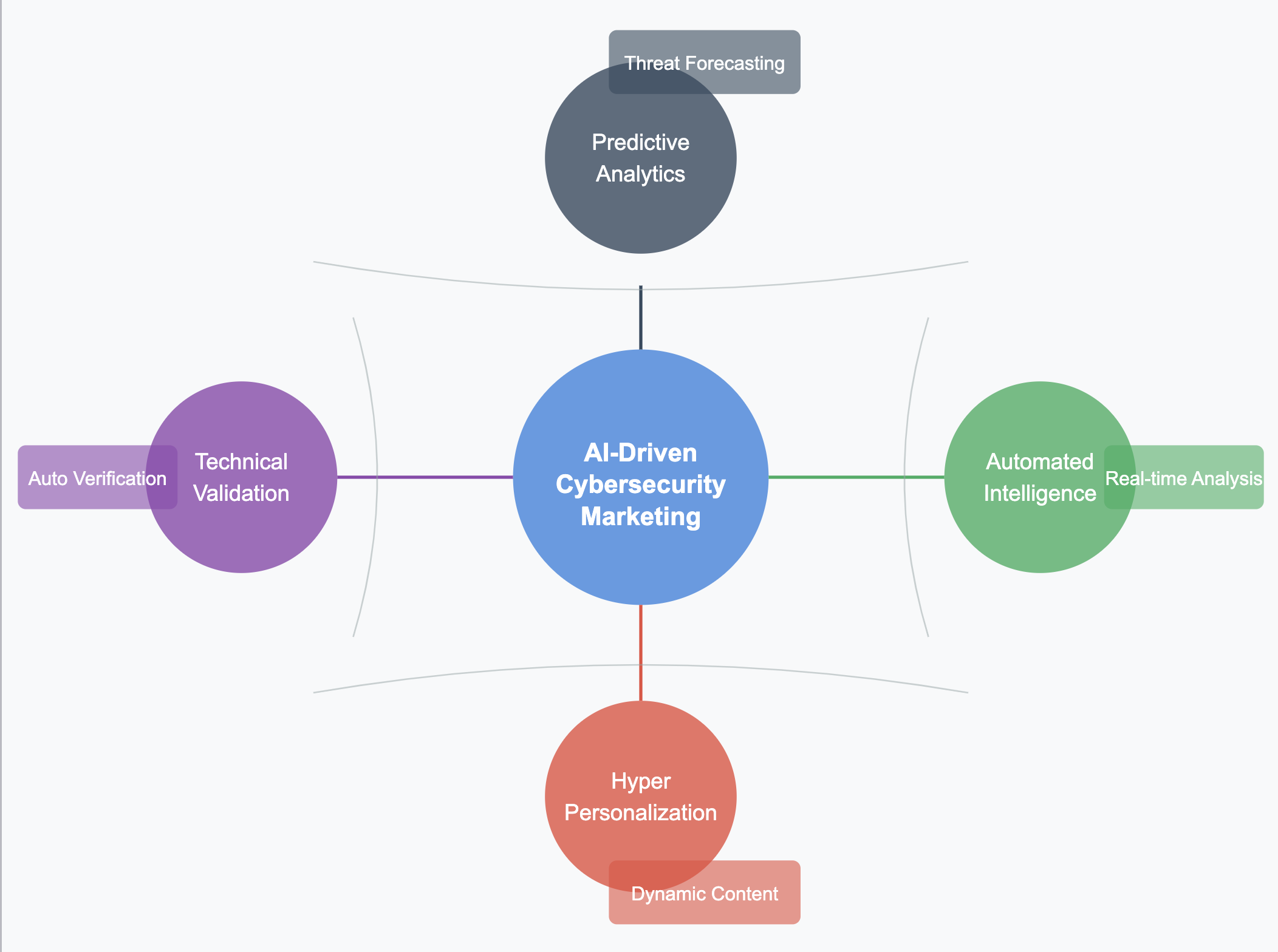AI-Driven Cybersecurity Marketing Strategies: Future Trends for 2025 and Beyond

The Future of Cybersecurity Marketing: AI-Driven Strategies for 2025 and Beyond
Source: Security Boulevard
Current State of Cybersecurity Marketing
Challenges Faced
- Technical Complexity: Marketing teams struggle to simplify complex security concepts for diverse audiences.
- Market Saturation: With over 3,500 vendors, differentiation becomes increasingly challenging.
- Changing Buyer Behavior: Sales processes often require collaboration among more than 11 stakeholders, primarily through digital channels.
The Influence of AI on Marketing
Performance Improvements
- Marketing efficiency increased by 61% through AI automation.
- Lead qualification accuracy improved by 40%.
- Content production time decreased by 73%.
- Campaign personalization effectiveness enhanced by 58%.
Evolution of AI in Marketing
- Foundation Phase (2020-2021): Basic NLP and early marketing chatbots.
- Enhancement Phase (2022): Advanced personalization engines and lead scoring algorithms.
- Integration Phase (2023): Cohesive customer experiences across marketing channels.
- Innovation Phase (2024): Integration of quantum computing and automated compliance systems.
- Looking Ahead (2025): Full AI integration for adaptive marketing strategies.
AI Technologies Shaping Cybersecurity Marketing
Natural Language Processing (NLP)
- AI enhances technical content generation and optimization accurately for different audience segments.
- Multilingual capabilities maintain technical accuracy across translations.
Predictive Analytics
- AI analyzes historical data to forecast future security needs.
- Helps align messaging with anticipated market demands.
Visual AI and Computer Vision
- Real-time threat mapping and visualization improves stakeholder understanding.
- Dynamic infographics and dashboards enhance data presentation.
Key Strategies for 2025 and Beyond
Hyper-Personalization at Scale
- AI enables the creation of individualized marketing experiences based on real-time data.
Automated Technical Validation
- Ensures technical accuracy of marketing claims through AI-driven verification.
Predictive Lead Scoring and Nurturing
- Identifies and nurtures potential customers based on detailed behavioral analysis.
Ethical Considerations
- Data Privacy: Organizations must ensure compliance with regulations while maintaining effective marketing.
- AI Oversight: Human involvement remains crucial to manage brand consistency and context.
Conclusion
As the cybersecurity marketing landscape shifts, successful adoption of AI technologies will become essential for enhancing marketing effectiveness, engaging customers, and positioning organizations competitively. Embracing innovation while prioritizing ethical considerations will define the future of marketing in the cybersecurity sector.




